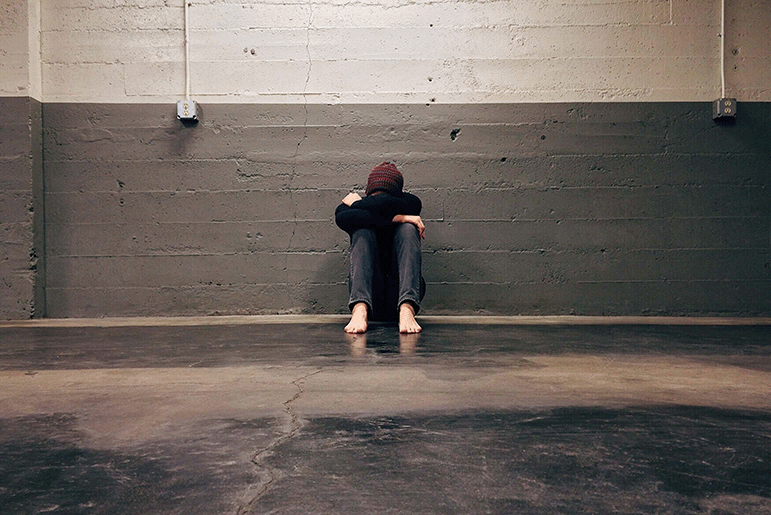Definition of Schizophrenia
Schizophrenia is a serious mental disorder that can affect behavior, emotions and communication. Schizophrenia patients may have hallucinations, delusions, muddled ideas, and behavioral disturbances.
It should be noted that people with schizophrenia have a 2–3 times higher risk of dying at a young age. This is because schizophrenia is generally accompanied by other diseases, such as heart disease, diabetes, or infection. In addition, people with schizophrenia are also prone to attempt suicide.
Schizophrenia Symptoms
Schizophrenia is a mental disorder that affects a person’s thoughts, feelings, and behavior. Symptoms of schizophrenia can vary from person to person and can range from mild to severe. Some of the most common symptoms of schizophrenia include:
Delusions: Beliefs that are not based on reality, such as believing that someone is trying to harm you or that you have special powers.
Hallucinations: Seeing, hearing, feeling, or smelling things that are not really there.
Disorganized speech: Difficulty speaking in coherent sentences or staying on topic.
Abnormal movements: Repetitive movements, lack of movement or abnormal posture.
Lack of emotion: Reduced emotional expression or an inability to experience pleasure.
Social withdrawal: Reduced interest in social interaction or difficulty connecting with others.
Lack of motivation: Difficulty starting or completing tasks.
Cognitive deficits: Difficulty with memory, attention, and problem-solving.
Schizophrenia Causes
There are several conditions that are thought to be related to this disease:
Genetic Factors
Offspring of people with schizophrenia have a 10 percent higher risk of developing the condition. The risk increases 40 percent greater when both parents have schizophrenia. Meanwhile, twins where one of them has schizophrenia will have up to 50 percent greater risk.
Complications of Pregnancy and Childbirth
Several disorders that might develop during pregnancy can lead to schizophrenia, and the effects manifest after the baby is delivered. These ailments include being exposed to viruses and poisons, having mothers with diabetes, bleeding during pregnancy, and nutritional inadequacies.
In addition to pregnancy-related issues, difficulties giving birth can also contribute to a child’s development of schizophrenia. For example, low birth weight, early birth, and asphyxia or lack of oxygen at birth.
Chemical Factors in the Brain
Elevated levels of serotonin and dopamine in the brain can be one of the causes and increase the risk of someone suffering from schizophrenia. Both are chemicals that function to transmit signals between brain cells as part of neurotransmitters.
In addition, people with schizophrenia also have differences in brain structure and function compared to people who do not experience mental disorders. These differences include:
Brain ventricles have a larger size. The ventricles are the fluid-filled parts of the brain.
The temporal lobe is smaller in size. Memory in the human brain Relating to the temporal lobe.
The cells in the brain have fewer connections
Schizophrenia Treatments
Schizophrenia is a complex mental disorder that affects a person’s thoughts, emotions, and behavior. Treatment for schizophrenia typically involves a combination of medication and therapy.
Medication:
Antipsychotic medications are the primary treatment for schizophrenia. These medications work by blocking dopamine receptors in the brain, which can help reduce the symptoms of psychosis, such as hallucinations and delusions. There are two types of antipsychotic medications: first-generation (typical) antipsychotics and second-generation (atypical) antipsychotics.
Therapy:
Psychotherapy can also be helpful in treating schizophrenia. Cognitive behavioral therapy (CBT) is often used to help patients manage their symptoms and learn coping skills. Family therapy can also be helpful, as it can improve communication and reduce stress within the family.
Other treatments:
Other treatments for schizophrenia may include psychosocial interventions, such as vocational rehabilitation, social skills training, and supported employment. These interventions can help individuals with schizophrenia learn practical skills and become more independent.
It’s important to note that treatment for schizophrenia is highly individualized, and what works for one person may not work for another. It’s important to work closely with a mental health professional to develop a treatment plan that is tailored to your individual needs.
- Mayo Clinic. Retrieved 2023. Schizophrenia.
- WebMD. Retrieved 2023. Schizophrenia.
- National Institutes of Health – MedlinePlus. Retrieved 2023. Schizophrenia.
- National Health Service – UK. Retrieved 2023. Schizophrenia.
- American Psychiatric Association. Retrieved 2023. Schizophrenia.
Ilustration from: pixabay.com 2023






